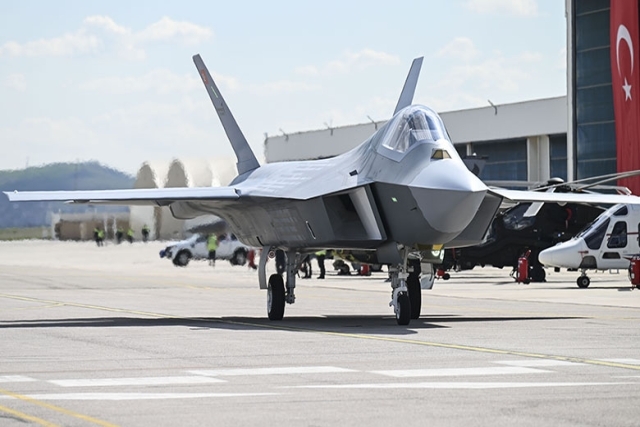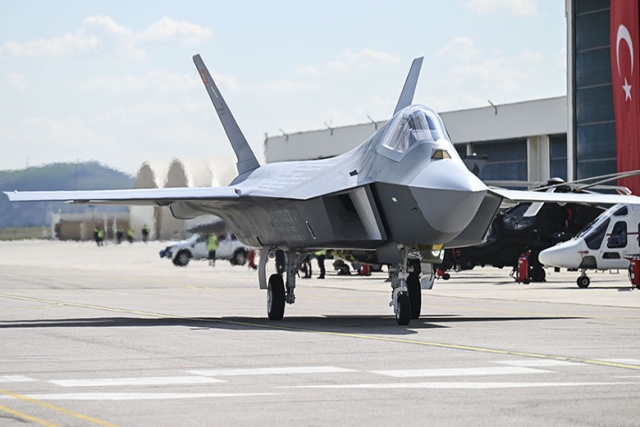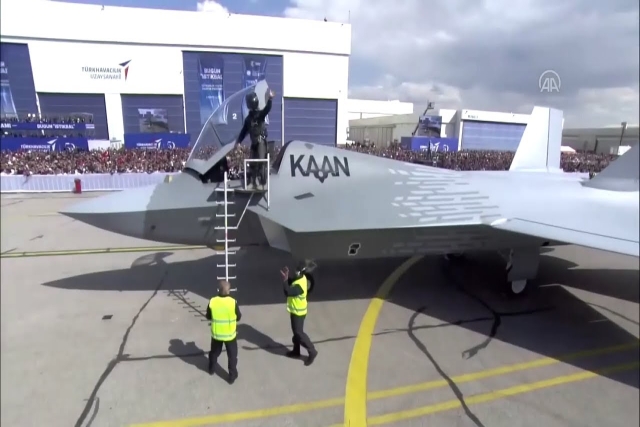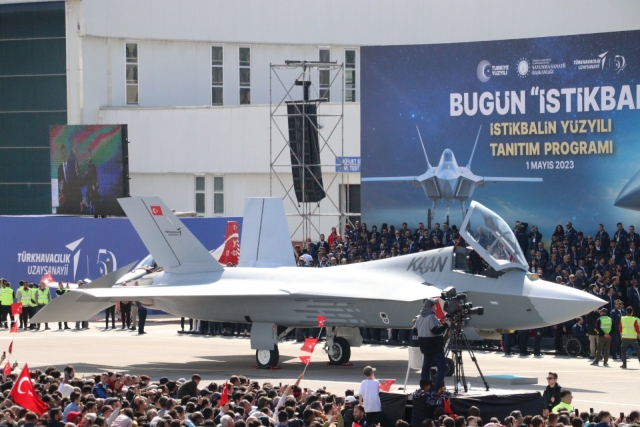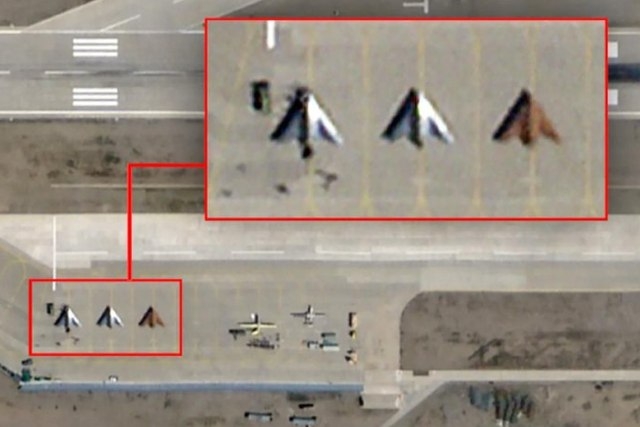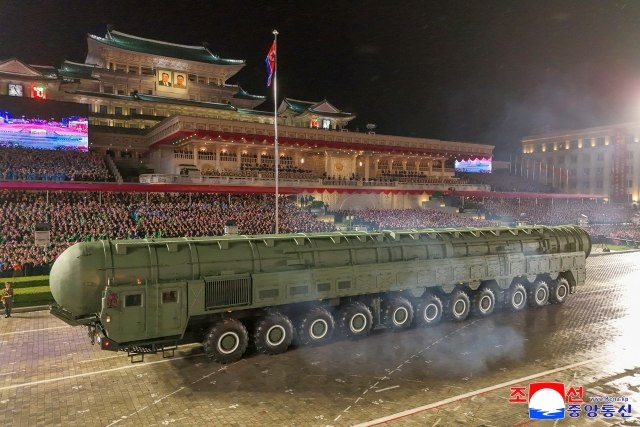Turkish KAAN Fighter Jet Performs Maiden Flight
First flight was supposed to take place in December 2023
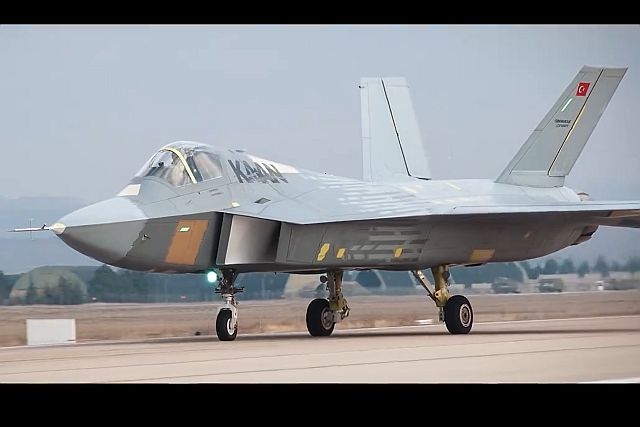
In a historic moment for Turkey's defense industry, the KAAN fighter jet, developed entirely with national resources as part of the National Combat Aircraft (MMU) Project, took to the skies for the first time today.
The event unfolded at Mürted Airport, where KAAN soared through the air under the command of test pilot Barbaros Demirbaş. The aircraft, which executed a short flight, was accompanied by an F-16 Fighting Falcon fighter jet during its maiden voyage. Following its performance, KAAN landed safely, deploying its parachute as part of the landing procedure. The post-flight transition of KAAN to the Turkish Aerospace Industries (TUSAŞ) marked a crucial step in the aircraft's development.
Designed to integrate with various platforms, including unmanned aerial vehicles and aerial notification systems, KAAN promises enhanced combat capabilities. Equipped with new-generation weapons and the ability to conduct precision strikes at supersonic speeds from internal weapon bays, KAAN boasts artificial intelligence and neural network support for increased combat power.
In his official post on the social media platform 'X' (formerly Twitter), Prof. Dr. Haluk GÖRGÜN, the President of the Defence Industry Agency (SSB), expressed pride in engraving another chapter in Turkey's history, emphasizing the project's significance in realizing the country's vision for defense industry localization.
Temel Kotil, CEO of Turkish Aerospace Industries (TAI), said earlier this year that the KAAN is expected to undergo its maiden flight by the end of March. Initially scheduled for a maiden flight in late December 2023, the National Combat MMU) KAAN faced a last-minute cancellation after ground tests and taxi tests revealed issues that needed addressing.
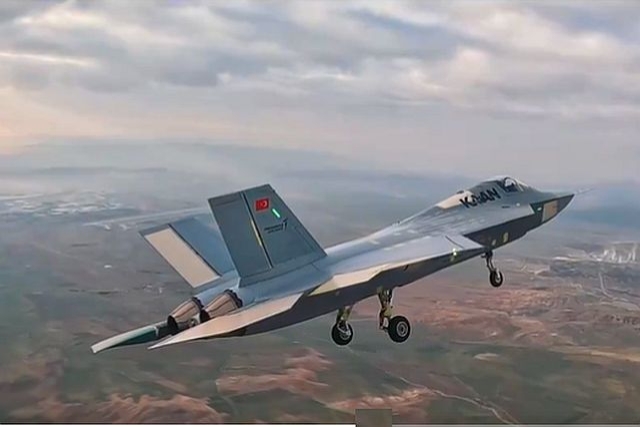
The detailed program calendar of MMU KAAN indicates that the project's initial conditions were met in 2018, and Phase-1, covering preliminary design activities, occurred between 2018 and 2022. The ongoing Phase-2, from 2022 to 2029, involves detailed design and qualification activities, with the aim to produce three prototypes by 2026. Currently, assembly activities for the second and third prototypes are underway at TAI facilities. The Block-10 configuration, targeted for development by 2029, is intended for the Air Forces Command. TAI revised the delivery date of ten KAAN Block-1 warplanes from Phase-2 to 2028, moving it forward from the initially announced timeline of 2030-2033. In Phase-3, scheduled for 2034-2040, development and mass production activities for other KAAN blocks will take place.
TAI announced the commencement of assembly activities for the second and third prototypes of the National Combat Aircraft KAAN in early December 2023, marking a significant step in the ambitious defense project. The second KAAN prototype is expected to be completed in the first half of 2024, and the integration of airworthy landing gear and the flight control computer into the first KAAN prototype has already been accomplished, with the aircraft leaving the hangar for the first time in May 2023.
Designed to replace the existing F-16 aircraft in the Air Forces Command inventory, the KAAN, formerly known as TF-X, is a sizable aircraft with a length of 21 meters and a maximum speed of 1.8 Mach. Equipped with twin engines generating 13,000kg thrust each, the KAAN is strategically designed to engage both air-to-air and air-to-ground targets, featuring a wholly domestic infrastructure for secure data sharing and the use of smart munitions. The aircraft incorporates features like high-performance radar, electronic warfare capabilities, electro-optics, communication, navigation, and identification systems, promising increased combat power with precise and accurate firing from internal weapon slots at high/supersonic speeds. Additional features include automatic target recognition and detection, multiple data fusion, and artificial intelligence capabilities.
